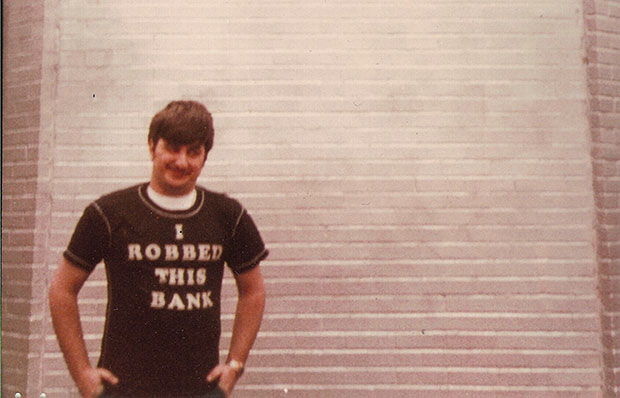John Wojtowicz should not be an engaging narrator.
Wojtowicz, who robbed a Brooklyn bank in August 1972 to finance his lover’s sex-change operation, is loud, obnoxious, vulgar, and sexually predatory. He’s also impossible to ignore. As horrible of a person as he was, he was still one of those only-in-New York figures who made the city more interesting, if not necessarily better.
Wojtowicz’s bank heist is best remembered as the inspiration for Sidney Lumet’s great 1975 caper Dog Day Afternoon, in which Al Pacino plays a slightly altered version of Wojtowicz. Nearly 40 years later, Lumet’s classic gets an unofficial sequel in The Dog, a biography far grubbier than anything Hollywood ever adapted.
Directors Allison Berg and François Keraudren started filming Wojtowicz more than a decade ago. Relying mostly on Wojtowicz and his doting Sicilian mother, Terry Basso, with whom he lived until his death in 2006, Berg and Keraudren start by diving back to Wojtowicz’s early-1960s military service. Wojtowicz had his first gay experience in basic training—he retells it as waking up in the middle of the night to find another recruit fellating him. He married in 1967 after he came home and had two children with his wife, from whom he was estranged by 1969 when he started living an openly gay life.
Wojtowicz was something of a crusader. To be openly gay in 1969 in New York City was dangerous, and Wojtowicz became a leader of the militant group Gay Activists Alliance, through which he met Ernest Aron. The couple became attached, and held what might have been the first public same-sex wedding ceremony—though non-binding, considering Wojtowicz’s existing marriage and the law at the time—in 1971.
But Aron’s desire for a gender change, at least as Wojtowicz tells it, unleashed “Dog,” the crude and often violent man Wojtowicz is remembered as. Wojtowicz was opposed to Aron’s wishes from the start: “What a lot of people don’t understand is that I didn’t want Ernie to have the sex-change operation. I was interested in a guy with big tits and a little dick,” he tells the camera.
The retelling of August 22, 1972, plays out largely similar to how Lumet portrayed it. Wojtowicz and his accomplices, Sal Naturale and Robert Westenberg, rolled up to a Chase Manhattan branch on a sticky Brooklyn afternoon and went about pulling one of the sloppiest bank robberies in history. The hostage situation, ordering pizza for the captives, and attempted escape to the airport are all the same.
But Wojtowicz colors in details of August 21 when, holed up in a hotel the night before the heist, he effectively raped Westenberg. “I’m giving you $50,000 and you’re telling me I’m not getting a f**k out of this?” Wojtowicz recalls in a disgusting boast. Berg and Keraudren just let the statement sit there.
For a film they worked on for more than seven years after the subject died, what Berg and Keraudren offer often feels rather incomplete. There is fleeting archival footage of Aron, who became Liz Eden and lived out a tragic life until her death from AIDS. There are glimpses of Wojtowicz’s final years, when he was ravaged by skin cancer but still took the time to visit his older brother, an epilepsy patient who lived as a ward of New York State. (It’s also one of “Dog’s” only humanizing moments.)
But this is Wojtowicz’s story to tell, and he lived it without a shred of remorse. Dog Day Afternoon became his life, from using his cut of the film money to pay for Eden’s gender reassignment surgery to suing Warner Bros. for a bigger chunk of the movie’s revenue to giving autographs outside the bank to curious New Yorkers who want the signature of the city’s most famous small-time crook.
If Wojtowicz had any regret, it might be that he never liked the movie based on his caper. “F**k Al Pacino,” he says. “I’m a bank robber.”
Screening Thursday, June 19, 3:45 PM and Sunday, June 22, 9 PM at AFI Silver Theatre.
Return to AFI Docs page.

















